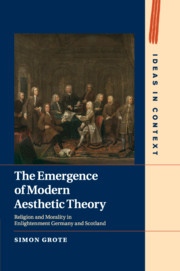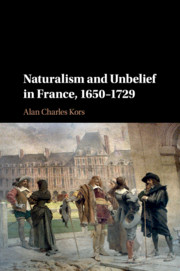The Emergence of Modern Aesthetic Theory
Broad in its geographic scope and yet grounded in original archival research, this book situates the inception of modern aesthetic theory – the philosophical analysis of art and beauty - in theological contexts that are crucial to explaining why it arose. Simon Grote presents seminal aesthetic theories of the German and Scottish Enlightenments as outgrowths of a quintessentially Enlightenment project: the search for a natural 'foundation of morality' and a means of helping naturally self-interested human beings transcend their own self-interest. This conclusion represents an important alternative to the standard history of aesthetics as a series of preludes to the achievements of Immanuel Kant, as well as a reinterpretation of several canonical figures in the German and Scottish Enlightenments. It also offers a foundation for a transnational history of the Enlightenment without the French philosophes at its centre, while solidly endorsing historians' growing reluctance to call the Enlightenment a secularising movement.
- Proposes a new way of understanding the history of aesthetic theory within a broader intellectual context
- Reinterprets several canonical figures of the Enlightenment in Germany and Scotland, such as Francis Hutcheson and Alexander Baumgarten
- Offers the most deeply researched account of William Cleghorn, Adam Ferguson's teacher and an important but seldom-studied figure of the Scottish Enlightenment, introducing him to a wider audience
Reviews & endorsements
'To be sure, Simon Grote's The Emergence of Modern Aesthetic Theory is an erudite, elaborate, and mature scholarly work.' Endre Szécsényi, The British Journal of Aesthetics
Product details
November 2019Paperback
9781107527706
307 pages
150 × 230 × 20 mm
0.46kg
Available
Table of Contents
- 1. Christian Wolff's critics and the foundation of morality
- 2. Pietist aisthesis, moral education, and the beginnings of aesthetic theory
- 3. Alexander Baumgarten's intervention
- 4. Francis Hutcheson at the margins of the Scottish Enlightenment
- 5. William Cleghorn and the aesthetic foundation of justice
- Conclusion.




